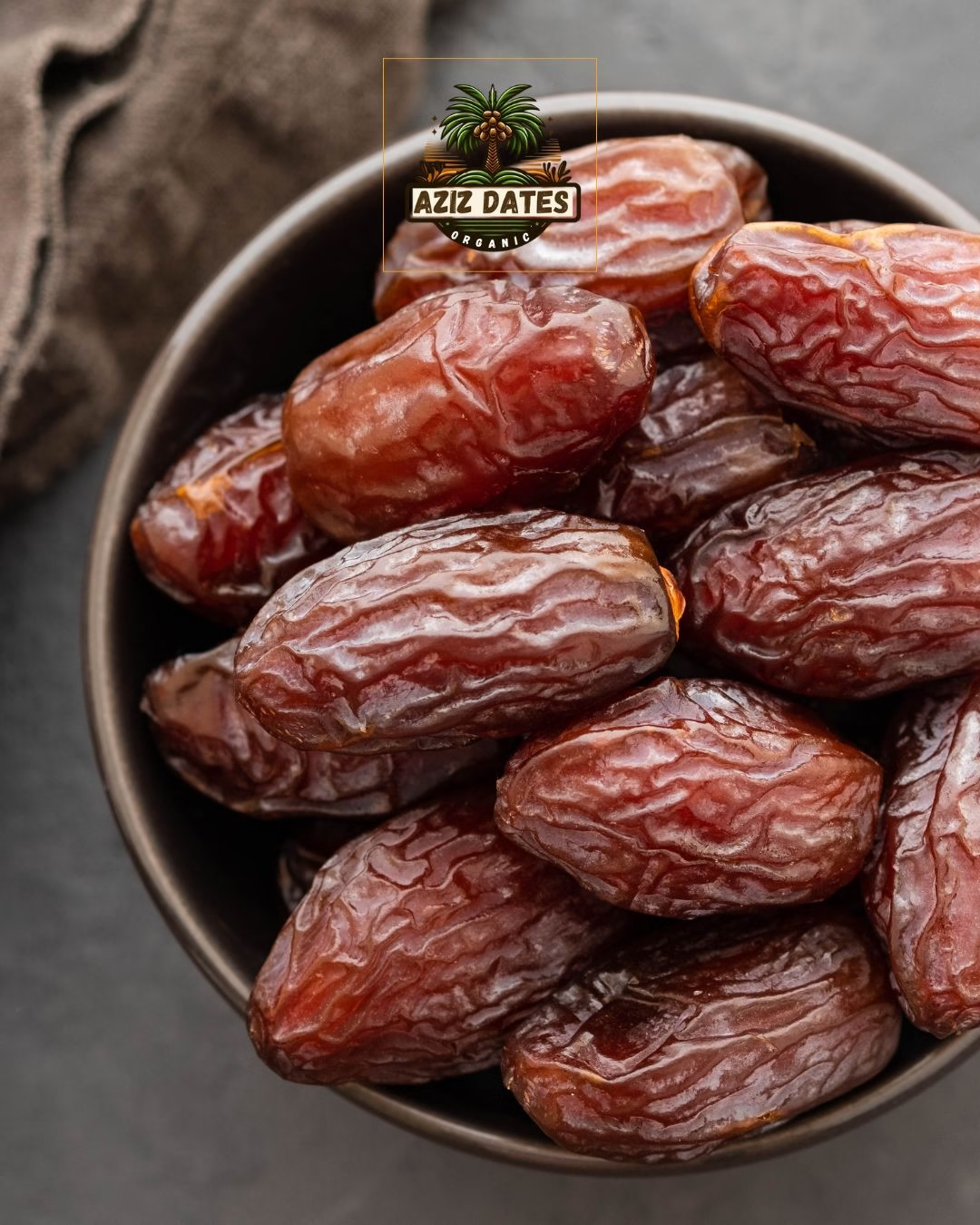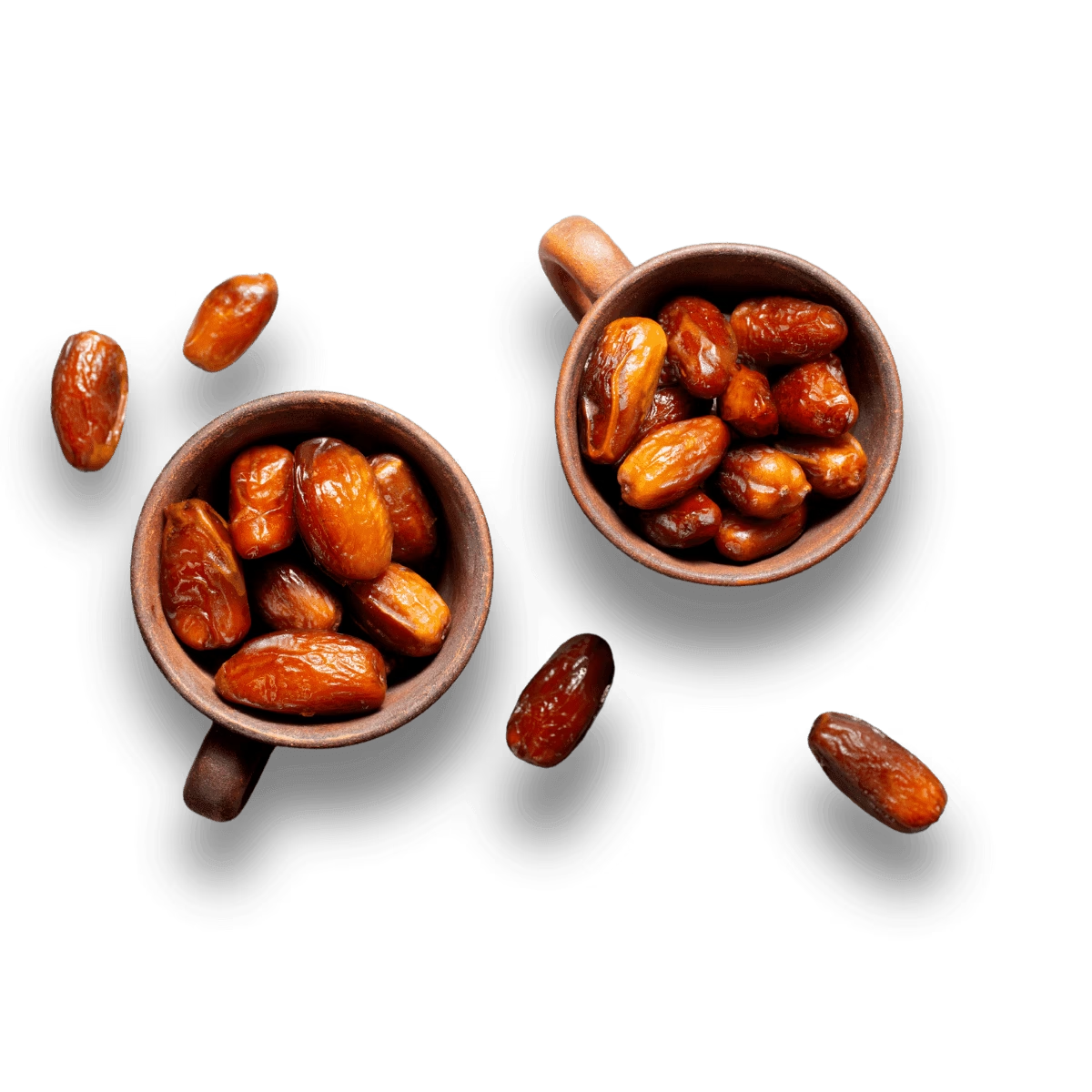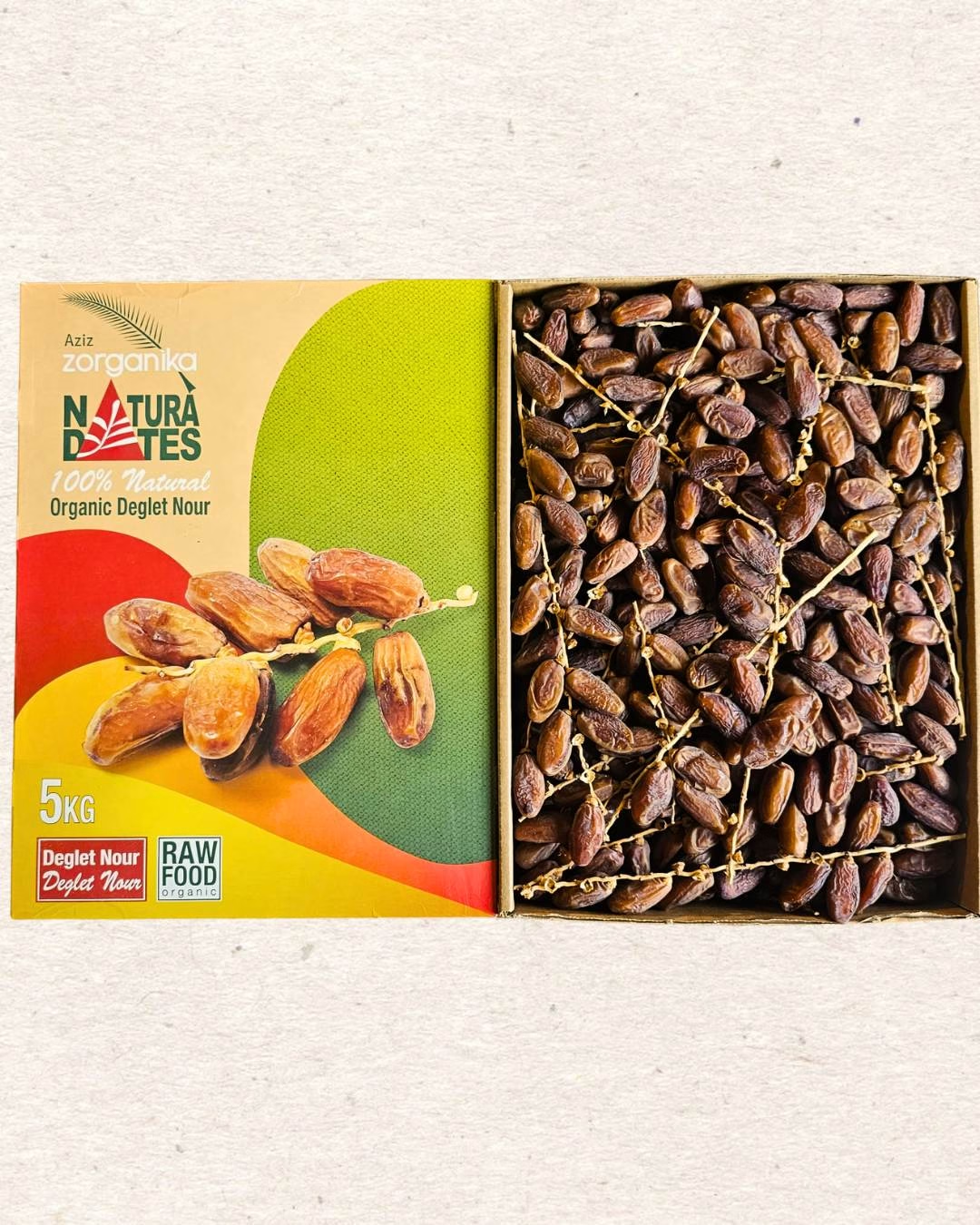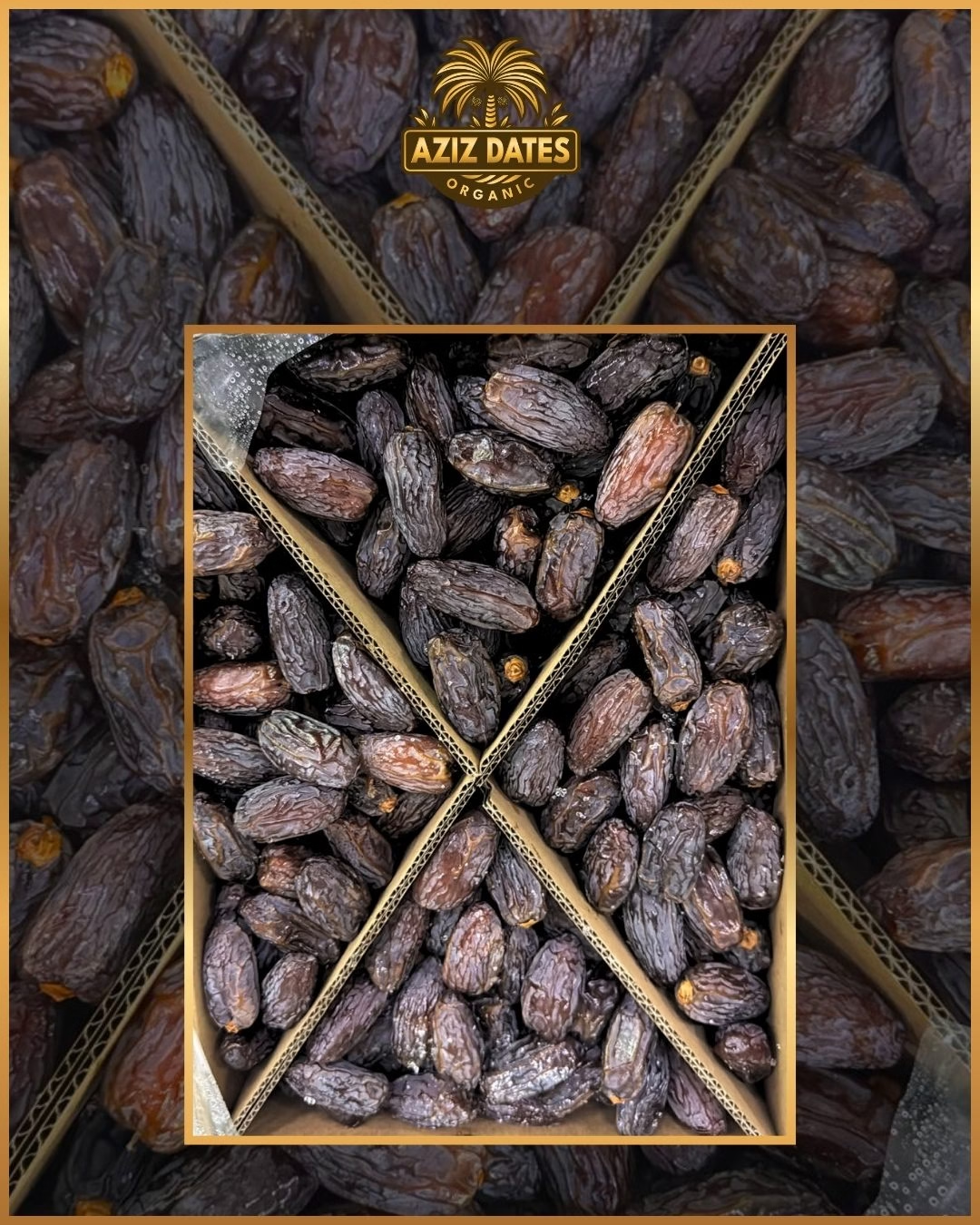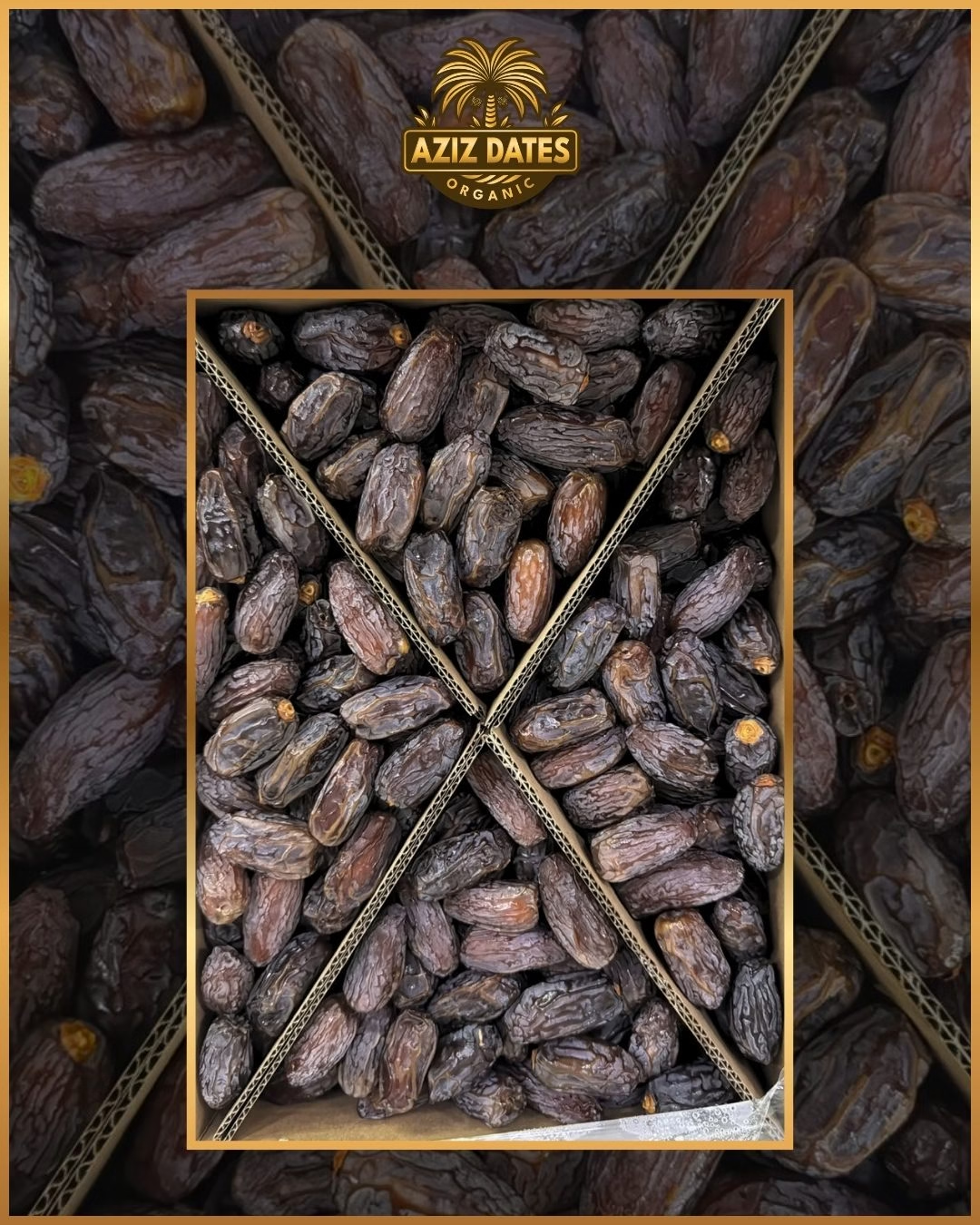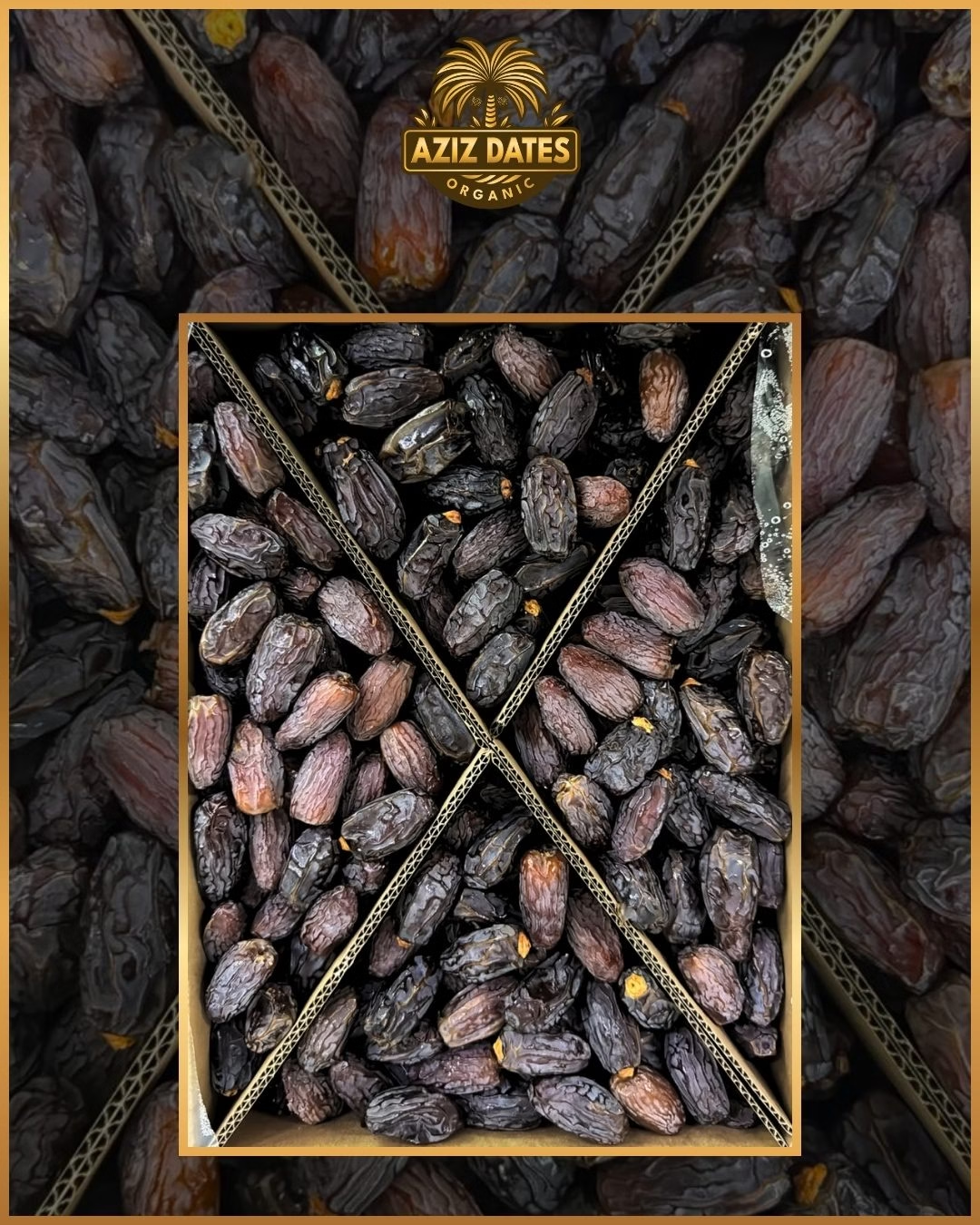
Pineapple with Feta, Cilantro, & Medjool Date
October 30, 2024
Pineapple with Feta, Cilantro, & Medjool Date
October 30, 2024The Importance of Folate DuringPregnancy: How Dates Can Help
Understanding Folate and Its Role in Pregnancy
Folate, also known as vitamin B9, is a water-soluble vitamin that plays a vital role in numerous bodily functions, particularly during pregnancy. It is essential for cell division and DNA synthesis, both of which are critical processes for the rapid growth and development of the placenta and the fetus. Adequate folate intake is crucial during the early stages of pregnancy, as it helps prevent serious birth defects, especially those affecting the neural tube, such as spina bifida and anencephaly.
During the first few weeks of pregnancy, the neural tube, which eventually becomes the baby's brain and spinal cord, forms and closes. Insufficient folate levels can lead to improper closure of the neural tube, resulting in these severe congenital disabilities. Thus, ensuring that pregnant women receive adequate amounts of folate can significantly reduce the risk of these conditions and support the healthy development of the baby.
It is also important to differentiate between folate and folic acid. Folate is the naturally occurring form of vitamin B9 found in various foods, such as leafy green vegetables, fruits, legumes, and fortified cereals. On the other hand, folic acid is the synthetic form of this vitamin, commonly found in dietary supplements and fortified foods. Due to its stability and bioavailability, folic acid is often recommended by healthcare providers, especially for women planning to conceive or those in the early stages of pregnancy.
The recommended daily intake of folate for pregnant women is 600 micrograms, which can be achieved through a combination of dietary sources and supplements. Healthcare providers typically advise women to start taking folic acid supplements at least one month before conception and continue throughout the first trimester to ensure sufficient levels of this critical nutrient. By understanding the importance of folate and adhering to these guidelines, expecting mothers can help promote healthy pregnancy outcomes and reduce the risk of neural tube defects in their babies.
Daily Recommended Folate Intake for Pregnant Women
The daily recommended folate intake for pregnant women is 600 micrograms (mcg). Achieving this level of folate through diet alone can be challenging, given that the nutrient is found in varying amounts in different foods. For many, folic acid supplements are an essential part of the prenatal regimen to ensure sufficient folate intake. These supplements are particularly crucial during the early stages of pregnancy, a critical period for fetal neural tube development.
Incorporating folate-rich foods into a pregnant woman’s diet is an effective way to contribute to the recommended intake. Foods high in folate include leafy green vegetables, legumes, seeds, and certain fruits such as oranges and avocados. Enriched grain products like bread and cereals also contain added folic acid, which can help bridge dietary gaps.
Prenatal vitamins play a vital role in maintaining adequate folate levels. These specially formulated supplements often contain the necessary 600 mcg of folic acid, ensuring that even if dietary sources fall short, the daily requirement is met. It's important for expectant mothers to consult with healthcare providers to select the right prenatal vitamins tailored to their individual needs.
Folate deficiency during pregnancy can pose significant risks, including an increased likelihood of neural tube defects such as spina bifida and anencephaly. Ensuring adequate folate intake is most critical during the first trimester when the neural tube is forming. However, maintaining appropriate folate levels throughout the entire pregnancy supports overall fetal development and reduces the risk of other complications.
Given the challenges of meeting the recommended folate intake through diet alone, a combined approach of consuming folate-rich foods and taking prenatal vitamins is often the most effective strategy to ensure both mother and baby remain healthy. This comprehensive approach minimizes the risk of folate deficiency and supports optimal pregnancy outcomes.
Nutritional Profile of Dates and Their Folate Content
Dates are a highly nutritious fruit that has been consumed for centuries, not only for their delectable taste but also for their numerous health benefits. One of the standout nutrients in dates is folate, also known as vitamin B9, which is crucial during pregnancy. A 100-gram serving of dates provides approximately 15 micrograms (mcg) of folate, making them a valuable natural source of this essential vitamin. Folate is indispensable for the proper development of the fetal neural tube, which later forms the brain and spinal cord, and helps in preventing birth defects.
When compared to other folate-rich foods, dates hold their own. For instance, a similar serving of spinach contains about 194 mcg of folate, while lentils provide around 181 mcg. Although dates may not offer as much folate as some leafy greens or legumes, they are still a convenient and tasty option to incorporate into a balanced diet, especially for those seeking variety. Moreover, dates can be easily included in snacks, desserts, and even savory dishes, enhancing the overall dietary intake of folate.
Beyond their folate content, dates are packed with other vital nutrients that support overall health during pregnancy. They are rich in dietary fiber, which aids in digestion and helps prevent constipation, a common issue during pregnancy. Dates also contain significant amounts of potassium, magnesium, and iron, minerals that play essential roles in maintaining blood pressure, muscle function, and oxygen transport within the body. Additionally, dates are a good source of natural sugars, providing a quick energy boost without the crash associated with refined sugars.
In summary, dates are a multifaceted fruit that offers a range of nutritional benefits. Their natural folate content, combined with other essential vitamins and minerals, makes them an excellent addition to a pregnant woman's diet, supporting both maternal and fetal health. As part of a balanced diet, dates can help ensure that both mother and baby receive the nutrients they need for optimal health and development.
Incorporating Dates into a Pregnancy Diet
Incorporating dates into a pregnancy diet can be both simple and rewarding, given their versatility and nutritional benefits. These naturally sweet fruits are a rich source of folate, which is vital for fetal development, as well as fiber, iron, and potassium. Moderation is key, as dates are high in natural sugars, but they can be included in a balanced diet in various delicious forms.
One easy way to enjoy dates is by adding them to smoothies. A popular recipe is a date and banana smoothie, which requires blending a few pitted dates, a ripe banana, a cup of milk or a dairy-free alternative, and a handful of ice. This smoothie is not only nutritious but also a quick breakfast or snack option.
Dates can also enhance salads, adding a natural sweetness that pairs well with savory ingredients. A chopped date, spinach, and feta salad with a light lemon vinaigrette is a simple yet flavorful dish. The dates' chewy texture contrasts nicely with the crisp spinach and creamy feta, making for a satisfying meal.
For a more portable snack, homemade date energy bars are an excellent choice. Combine pitted dates, oats, nuts, and a bit of honey in a food processor until the mixture sticks together. Press it into a baking dish, refrigerate until firm, and cut into bars. These energy bars are perfect for an on-the-go snack, providing a quick energy boost without the need for processed sugars.
Dates can also be incorporated into savory dishes. A well-loved recipe is chicken tagine with dates, a traditional Moroccan dish. The dates add a hint of sweetness that complements the savory spices, creating a balanced and flavorful meal.
Experts and testimonials support the benefits of consuming dates during pregnancy. According to a study published in the Journal of Obstetrics and Gynaecology, consumption of dates in the last few weeks of pregnancy can promote cervical dilation and reduce the need for induced labor. However, it is essential to consume dates in moderation due to their high sugar content, especially for those monitoring their blood sugar levels.
In conclusion, dates are a versatile and nutritious addition to a pregnancy diet, offering various options for both sweet and savory dishes. By incorporating them thoughtfully, expectant mothers can enjoy their numerous health benefits while maintaining a balanced diet.
Deglet Noor ديجل نور
105.00 ₪Delights Ball
65.00 ₪Energy Balls
105.00 ₪Jumbo تمر مجهول جامبو
120.00 ₪Jumbo Premium تمر مجهول فاخر جامبو
Price range: 40.00 ₪ through 190.00 ₪Large choice تمر مجهول اختياري حبة كبيرة
Price range: 29.00 ₪ through 155.00 ₪Large Premium تمر مجهول فاخر حبة كبيرة
Price range: 35.00 ₪ through 170.00 ₪Medium choice تمر مجهول اختياري حبة وسط
Price range: 25.00 ₪ through 135.00 ₪Medium Premium تمر مجهول فاخر حبةوسط
Price range: 31.00 ₪ through 145.00 ₪Small choice تمر مجهول اختياري حبة صغيرة
Price range: 22.00 ₪ through 125.00 ₪

